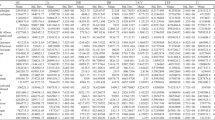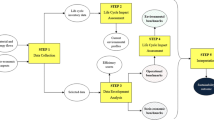Abstract
Nowadays, there is consensus on the fact that the sustainability, in which the international political debate constitute one of the most powerful concepts, opens entirely new opportunities for reaching higher levels of development. Sustainability development means making sure the social, economic and environmental needs of current generations are met and kept healthy for future generations. Increasing importance of sustainable development has lead eco-efficiency to find a specific position in literature. Efficiency is an index that measures management ability in optimal use of inputs for generating outputs. A unit can be more efficient if it produces 1) the same outputs with fewer inputs 2) more or better outputs for the same inputs. Data Envelopment Analysis (DEA) is one of the power efficient evaluation methods. In this paper, a new method is proposed for appraising eco-efficiency of manufacturing factories based on an extended DEA approach. The advantage of this model in contrast with current models in eco-efficiency is that DM can keep in perfect control the dispersal of weights. Finally, a case study is implemented by using simulated data in order to evaluate proposed model.
Access this chapter
Tax calculation will be finalised at checkout
Purchases are for personal use only
Preview
Unable to display preview. Download preview PDF.
Similar content being viewed by others
References
Dehghanian, F., Mansour, M.: Designing sustainable recovery network of end-of-life products using genetic algorithm, Resources. Conservation and Recycling 53, 559–570 (2009)
Cowell, S., Parkinson, S.: Localisation of UK food production: an analysis using land area and energy as indicators. Agriculture, Ecosystems and Environment 94, 221–236 (2003)
WCED (World Commission on Environment and Development) our common future. Oxford University Press, Oxford (1987)
Fathi, M., et al.: Using Compromised Method in Design of Reverse Logistics Network with Eco-Efficiency Consideration. IEEE Transactions on Industrial Engineering, 1454–1458 (2009)
Zhang, B., et al.: Eco-efficiency analysis of industrial system in China: A data envelop-ment analysis approach. Ecological Economics 68, 306–316 (2008)
Yang, F., et al.: Modeling undesirable outputs in eco-efficiency evaluation to paper mills along the Huai River based on DEA. Environment and Sustainable Development 10, 36–47 (2011)
Barba-Gutiérrez, Y., et al.: Eco-Efficiency of Electric and Electronic appliances: A Data Envelopment Analysis. Environmental Modeling and Assessment 14, 439–447 (2009)
Hua, Z., et al.: Eco-efficiency analysis of paper mills along the Huai River: An extended DEA approach. Omega 35, 578–587 (2007)
Kuosmanen, T., Kortelainen, M.: Valuing environmental factors in cost–benefit analysis using data envelopment analysis. Ecological Economics 62, 56–65 (2007)
Michelsen, O.: Eco-efficiency in redesigned extended supply chains; furniture as an example. Eco-Efficiency in Industry and Science 22, 163–179 (2007)
Korhonen, P.J., Luptacik, M.: Eco-efficiency analysis of power plants: An extension of data envelopment analysis. Eur. J. Operational Research 154, 437–446 (2004)
Charnes, A., Cooper, W., et al.: Short communication: Measuring efficiency of decision making units. Eur. J. Operational Research 3, 339 (1979)
Author information
Authors and Affiliations
Editor information
Editors and Affiliations
Rights and permissions
Copyright information
© 2011 Springer-Verlag Berlin Heidelberg
About this paper
Cite this paper
Zadeh, A.H. et al. (2011). Eco-Efficiency Measurement by Implementing DEA Models with Weight Restrictions. In: Corchado, E., Snášel, V., Sedano, J., Hassanien, A.E., Calvo, J.L., Ślȩzak, D. (eds) Soft Computing Models in Industrial and Environmental Applications, 6th International Conference SOCO 2011. Advances in Intelligent and Soft Computing, vol 87. Springer, Berlin, Heidelberg. https://doi.org/10.1007/978-3-642-19644-7_33
Download citation
DOI: https://doi.org/10.1007/978-3-642-19644-7_33
Publisher Name: Springer, Berlin, Heidelberg
Print ISBN: 978-3-642-19643-0
Online ISBN: 978-3-642-19644-7
eBook Packages: EngineeringEngineering (R0)




